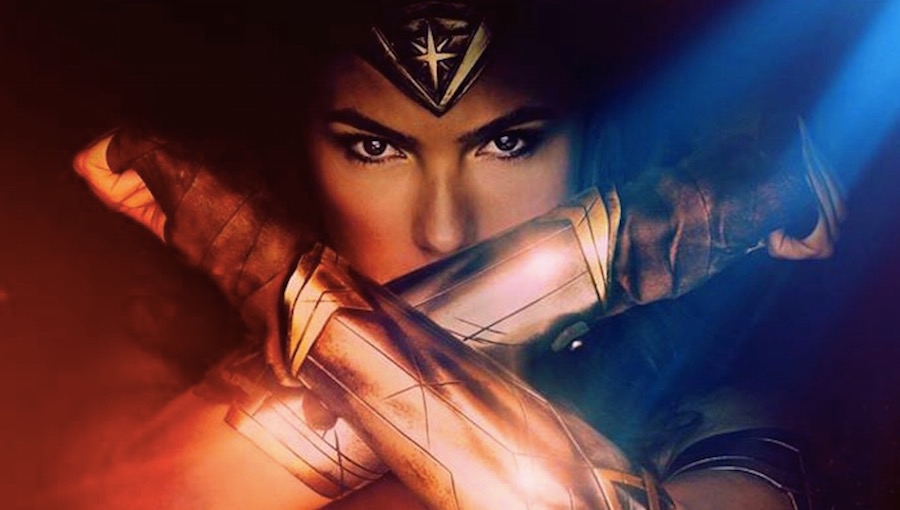On the last morning of Stan Lee’s Los Angeles Comic Con, a small audience group gathered for the “From Wonder Woman to Elektra: How are Women Characters Represented?” panel which was moderated by Jessica Tseang (Little Geek Girl). Joining her were Ify Nwadiwe (Krillin It with Dani and Ify), Dani Fernandez (Krillin It with Dani and Ify), Barbra Dillon (Editor-in-Chief, Fanbase Press), and Steven L. Sears (Xena: Warrior Princess, Sheena).
Due to recent news that Wonder Woman has been developed as a bi-sexual/lesbian woman, Tseang poised the first question of the hour: Was this pandering to the fans? Sears said that when he was writing Xena, the team did discuss her sexuality, but it wasn’t covered overtly because that was her world. He did say that he is worried about this development and said it will depend how it is handled. Fernandez has been watching the tweets on Twitter, sharing that some have mentioned it is a “boner killer.” She felt that while there are no labels on Paradise Island, she finds it interesting that “we” need labels. Tseang voiced concern about pandering for sales, especially to the LGBTQ community. Nwadiwe stated that the pandering question seems to always come up, and he is actually glad that it does because he explained that the disenfranchised are thirsty for representation. Dillon weighed in that this character attribute will provide an opportunity to educate and hopefully lessen the fear indicative of individuals who face the unfamiliar. Sears agreed and mentioned that the show Queer Eye for the Straight Guy let straight men witness there is nothing to fear.

Tseang next brought up audience responses that tend to be polar opposite. For example, Miss Knight from the Netflix show, Luke Cage. Nwadiwe said he hasn’t watched the show yet, but he is looking forward to seeing it. He added that Claire Temple is an amazing character and deserved an MVP. Dillon is appreciative of the complex characters that are being developed; however, there still exists a gap with representation that truly portrays the diversity that exists in real life. Nwadiwe said it is fantastic though when he is able to connect with a character, such as Black Panther, because he identifies with the character. Sears shared that since he grew up on military bases where there was much diversity amongst his neighbors, the experience has had a lasting impact on how he writes characters. For example, he doesn’t look at females as stereotypes or to fulfill a function in his stories. While it seems that we have made strides with the portrayal of women, Fernandez revealed that casting calls still search for actors based on racial function. Having worked on several television series over the years, Sears added that sometimes he had to fight to keep a character dynamic and complex – a writer can only do so much.
Agent Carter was well received, but it still got cancelled. Fernandez thought that what happened with this series is typical of television today: series that struggle get cancelled more quickly. She felt that Marvel has strategized well to work with Netflix to stream their shows. She hopes that Agent Carter will get picked up elsewhere. Sears advised that “fan awareness” has power today, because the studios are now looking at what’s being said since it indicates perceived money makers. Nwadiwe observed that the landscape of television is changing, so he is thankful for Netflix. He also encouraged the audience to not be afraid to support shows with tweets and such on social media. Dillon agreed and also encouraged individuals to find the character they identify with and support, being part of building a fanbase for the character and the show.
Dialogue around Super Girl often focuses on and emphasizes “girl” rather than the character, Tseang said. Fernandez stated this is not a conversation we have with male characters and said, “It’s frustrating to me.” One of her female colleagues asked how she could write a male perspective, again an emphasis falling to the gender factor rather than character development. Sears had a story that segued into Fernandez’s point. He said that we are all in our own fishbowls, but the water is supplied by society’s hegemony (a masculine perspective). Women are going to be much more aware of the water (masculine) around them then men are, because the water complements their values. Hence, it should not be said that women cannot write male characters.
In the remaining few minutes, Tseang opened up the floor to questions and then asked the panelists to share how to find them at the con and on social media.
Panel photography by Michele Brittany.

